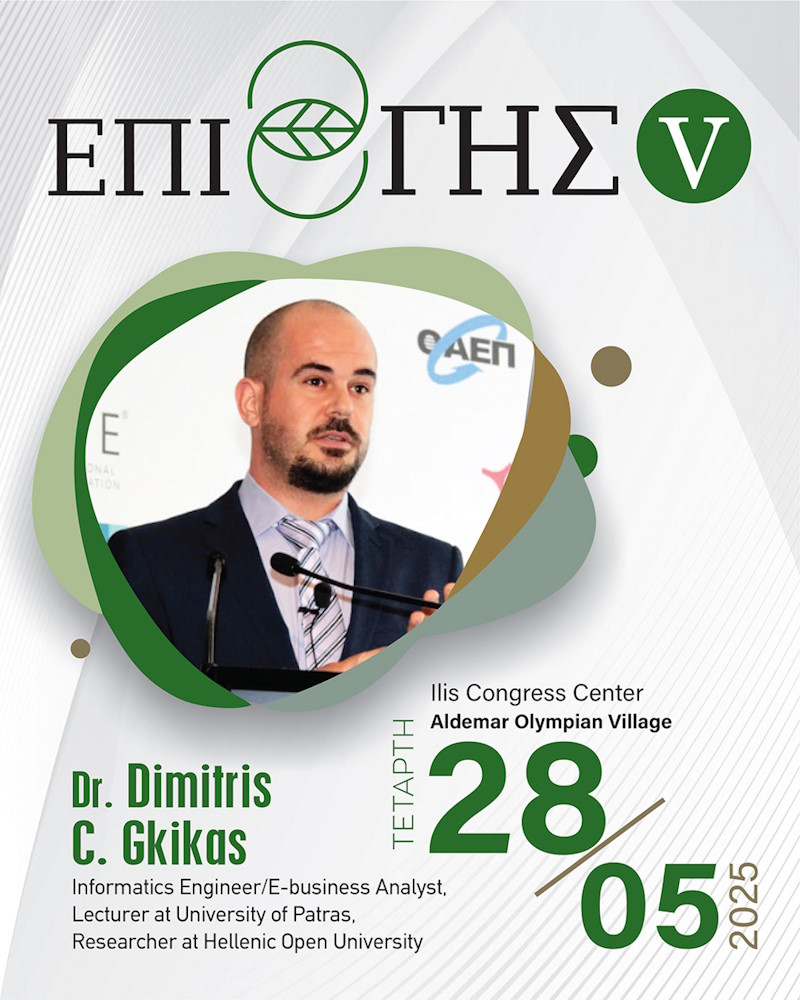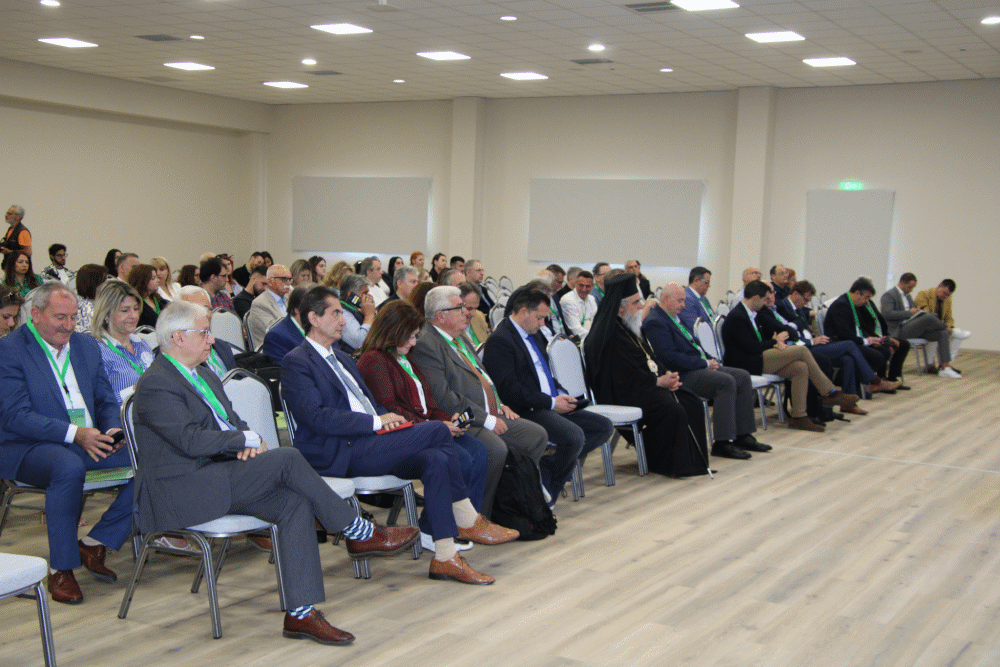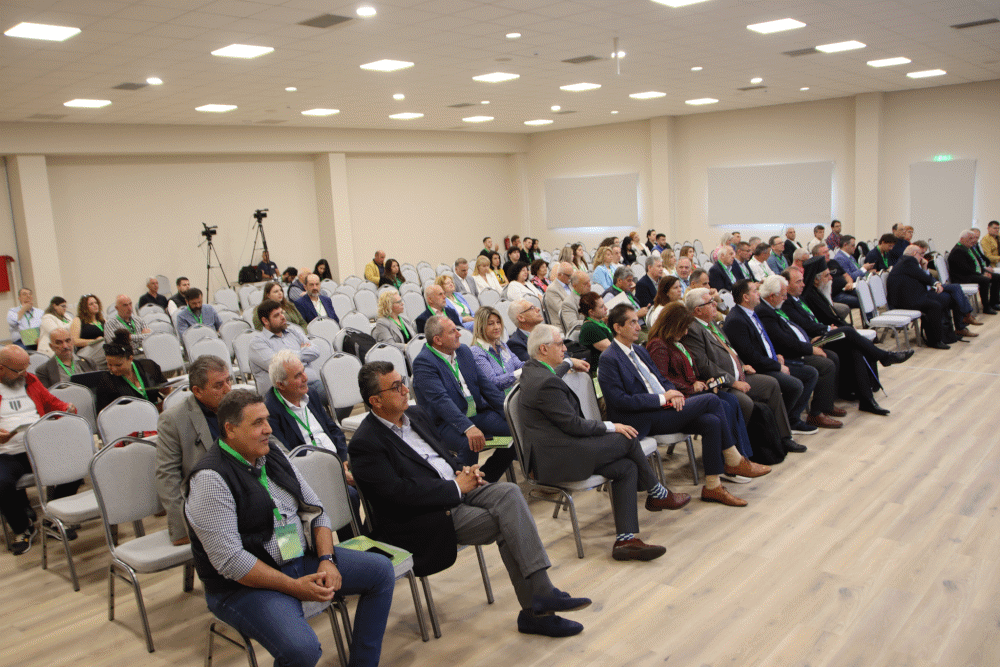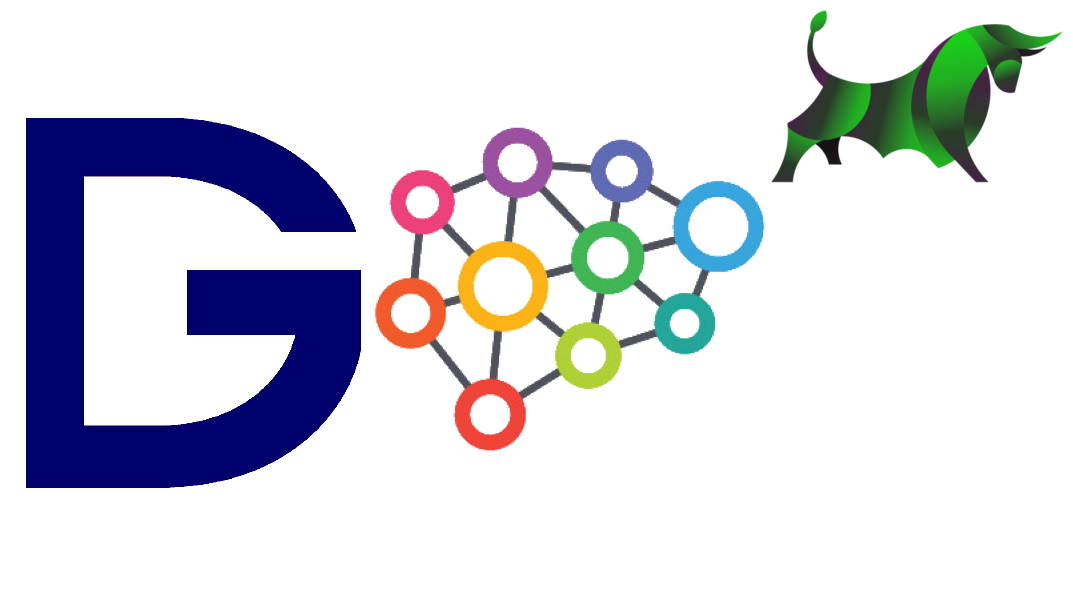2025 - 5th Agricultural Conference "EPY GES"
Greece
Digital Marketing in Community Engagement for Marine Life Protection
Topic: Digital Marketing in Marine Life Protection
Dr. Dimitris Gkikas presents at EPI GIS V Conference in Ilia
Ilia, March 28 – Dr. Dimitris Gkikas, postdoctoral researcher at the Department of Fisheries and Aquaculture (ASFA), University of Patras (asfa.upatras.gr; dgkikas.com), participated as a keynote speaker at the EPI GIS V Conference, presenting on the innovative role of digital marketing in marine life conservation. The event, covered by Agronews, gathered scientists, institutions, and digital technology stakeholders to explore the use of Geographic Information Systems (GIS) in environmental protection.
Dr. Gkikas’ talk highlighted how digital marketing tools, including social media campaigns, interactive GIS dashboards, and real-time engagement strategies, can significantly contribute to marine biodiversity awareness and public participation in conservation actions.
Key topics included:
-
GIS storytelling for conservation: Using geospatial tools to visualize and narrate marine risks, critical habitats, and biodiversity zones.
-
Omnichannel strategy: Leveraging social media platforms, influencer collaboration, and targeted messaging to enhance outreach and environmental education.
-
Data-driven engagement: Monitoring performance indicators (KPIs) like campaign reach, interaction rates, and behavioral change through analytics.
Why Digital Marketing is Crucial for Marine Life
-
Expanding audience reach: Digital platforms connect millions, raising awareness beyond scientific circles.
-
Real-time citizen participation: Users can digitally report threats, sign petitions, or join local conservation events.
-
Impact measurement: Analytics provide insights into demographic reach, effectiveness of messaging, and strategic adjustments.
Impact and Future Initiatives
-
Stakeholder collaboration: Dr. Gkikas emphasized the importance of bridging academia, public bodies, and NGOs to scale these approaches.
-
Pilot campaigns in Western Greece: The University is initiating digital outreach actions in coastal communities, combining online engagement and field-based workshops.
-
ASFA’s interdisciplinary role: By combining marine science, digital communication, and data science, ASFA contributes to actionable solutions for sustainable coastal development.
ASFA’s Commitment
The Department of Fisheries and Aquaculture (ASFA) plays a leading role in integrating academic research with applied technologies. As Dr. Gkikas stated during the conference:
"Marine protection is no longer just about science – it’s also about digital visibility, community engagement, and real-time communication."
Key Takeaways
The presentation showcased how digital marketing can:
-
Amplify public awareness of marine threats and opportunities.
-
Utilize GIS-based visual storytelling for education and advocacy.
-
Monitor and refine outreach efforts using performance data.
This pioneering intersection of marine science and digital media sets a foundation for smarter, data-driven, and more inclusive conservation strategies.
Looking AheadDr. Gkikas’ participation at EPI GIS V marks a significant milestone in promoting citizen-powered marine conservation. Through strategic communications, scientific mapping, and collaborative action, the goal is clear:
A more sustainable and digitally informed approach to saving our seas.




